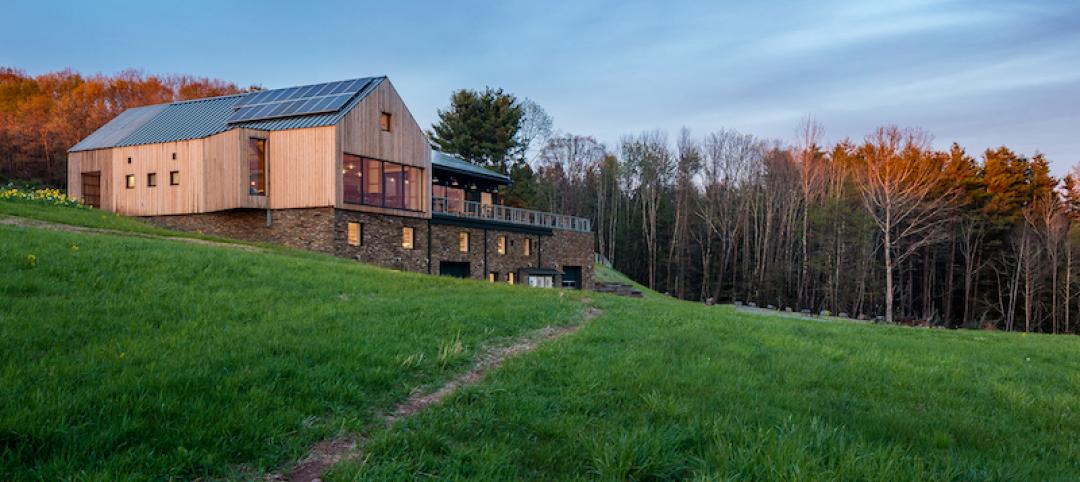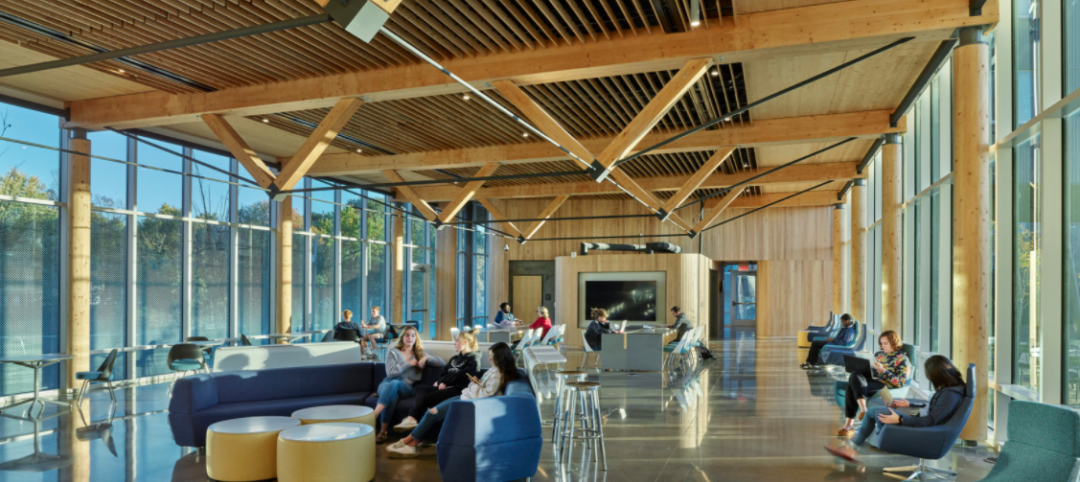The Center for Sustainability at Johnson County Community College (JCCC), Overland Park, Kansas, set aggressive goals for the College, including becoming a 100% renewable energy campus by 2050. This commitment affected every building project on campus, including Galileo’s Pavilion, a 3,000-square-foot academic building. Super-efficient practices and products, including Mitsubishi Electric Cooling & Heating Variable Refrigerant Flow (VRF) technology, have made Galileo’s Pavilion a true showcase of sustainability and earned LEED® Platinum certification.
The JCCC contacted Studio 804, a not-for-profit in Lawrence, Kansas, comprised of KU School of Architecture, Design and Planning graduate students. These students design and construct technologically sophisticated, green buildings under the direction of Dan Rockhill, distinguished architecture professor and Studio 804 founder. Rockhill said, “We designed Galileo’s Pavilion using our current knowledge of sustainable design. We took advantage of the daily and seasonal cycles of nature to passively cool, heat and daylight the building, as well as supply electricity and utility water.”
For HVAC, Rockhill said, “We had three distinctly separate spaces. Although they’re in the same building, the loading on them is different. So that resulted in three separate air-conditioning and heating solutions” – or, zoning. “We pride ourselves on promoting sustainable everything, so HVAC is no exception.” VRF was the clear choice.
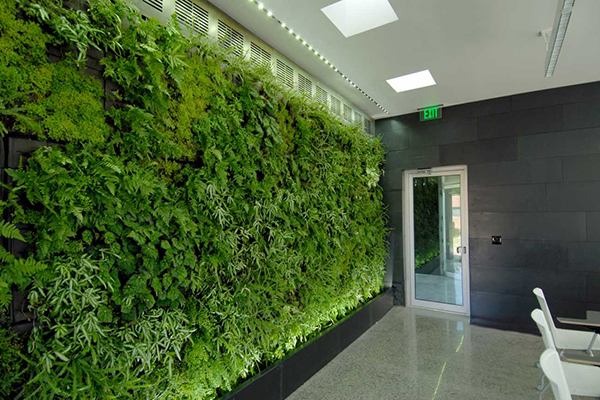
Rockhill had been impressed with Mitsubishi Electric VRF on a recent project. “Mitsubishi [Electric] is a leader in its field. Many of the others follow, but Mitsubishi [Electric] developed the variable refrigerant concept. For Galileo’s Pavilion, we wanted the most technologically advanced equipment in the industry. So VRF and its capacity to simultaneously cool and heat all of the spaces within the building was a fit.”
He continued, “Mitsubishi [Electric] was also very generous in working on the engineering aspect of the Center for Design Research. Mitsubishi [Electric] gets passive solar, and gets that it’s the sum of the total of all the parts that makes the systems positive. And there was never any pushback from them. It was always, “Yeah, that’s great.”
“Installation went quite well. The Mitsubishi [Electric] units are compact and easy enough to install that the whole thing really was pretty simple,” said Rockhill.
“The school monitors the whole thing,” explained Michael Rea, JCCC’s sustainability project manager, “through our building automation system. The Mitsubishi [Electric] system is integrated so we can see humidity or change set points, for example.”
He continued, “Everything with the Mitsubishi [Electric] system has been going well. No compressor failures, no leaks, no fan problems, nothing. Our maintenance is easy, too – just changing the filters and making sure the condensers are clean.”
Another sign of success: LEED Platinum certification. Rea said, “For us in the Center, we were excited to get above Silver, our current standard. Galileo’s Pavilion is a showcase about what a sustainable building can be on a campus. We were also honored to receive the 2013 CSI Kansas City Chapter Innovation in Sustainability Award for the building.”
Related Stories
Wood | Jul 16, 2021
The future of mass timber construction, with Swinerton's Timberlab
In this exclusive for HorizonTV, BD+C's John Caulfield sat down with three Timberlab leaders to discuss the launch of the firm and what factors will lead to greater mass timber demand.
Industrial Facilities | Jul 2, 2021
A new approach to cold storage buildings
Cameron Trefry and Kate Lyle of Ware Malcomb talk about their firm's cold storage building prototype that is serving a market that is rapidly expanding across the supply chain.
Resiliency | Jun 24, 2021
Oceanographer John Englander talks resiliency and buildings [new on HorizonTV]
New on HorizonTV, oceanographer John Englander discusses his latest book, which warns that, regardless of resilience efforts, sea levels will rise by meters in the coming decades. Adaptation, he says, is the key to future building design and construction.
Sustainability | Jun 23, 2021
The world’s first Passive House Certified cidery completes
River Architects designed the project.
Education Facilities | Jun 4, 2021
Three ProConnect events coming this fall: Sustainability (Nov 2-3), Education (Nov 16-17), Multifamily (Dec 12-14)
SGC Horizon ProConnect 2021 schedule for Education, Multifamily, Office, and Single Family events.
Sustainability | May 28, 2021
Nexii builds the first sustainably constructed Popeyes restaurant in Canada
The new restaurant was built in under two weeks.
High-rise Construction | May 27, 2021
The anti-high rise: Seattle's The Net by NBBJ
In this exclusive video interview for HorizonTV, Ryan Mullenix, Design Partner with NBBJ, talks with BD+C's John Caulfield about a new building in Seattle called The Net that promotes wellness and connectivity.
Wood | May 14, 2021
What's next for mass timber design?
An architect who has worked on some of the nation's largest and most significant mass timber construction projects shares his thoughts on the latest design trends and innovations in mass timber.
Sustainability | May 12, 2021
Climate modeling for a resilient business and future
This post explores changes that developers and their teams need to make to their risk and resilience strategies by climate modeling for climate change.


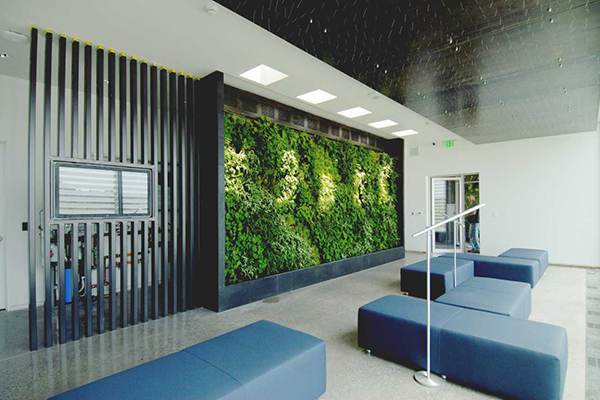
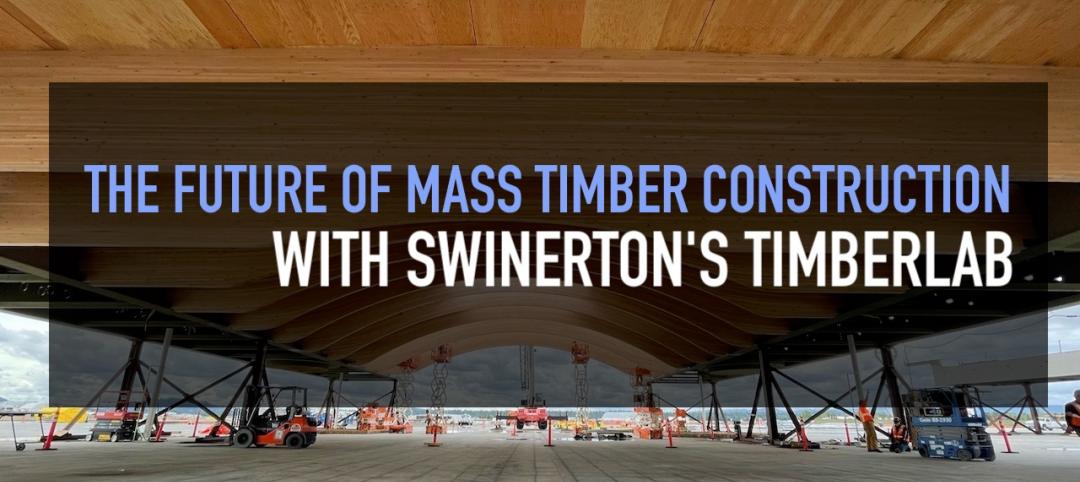

![Oceanographer John Englander talks resiliency and buildings [new on HorizonTV] Oceanographer John Englander talks resiliency and buildings [new on HorizonTV]](/sites/default/files/styles/list_big/public/Oceanographer%20John%20Englander%20Talks%20Resiliency%20and%20Buildings%20YT%20new_0.jpg?itok=enJ1TWJ8)
